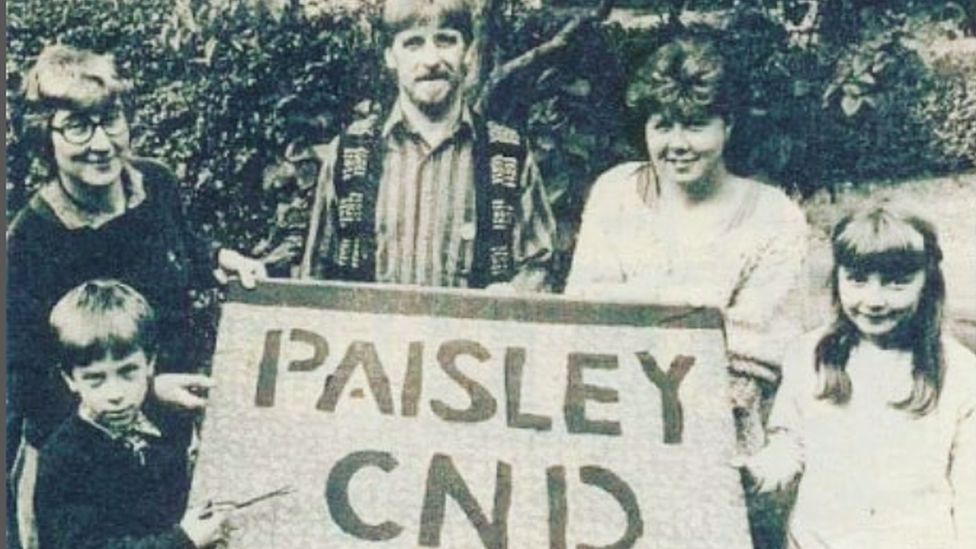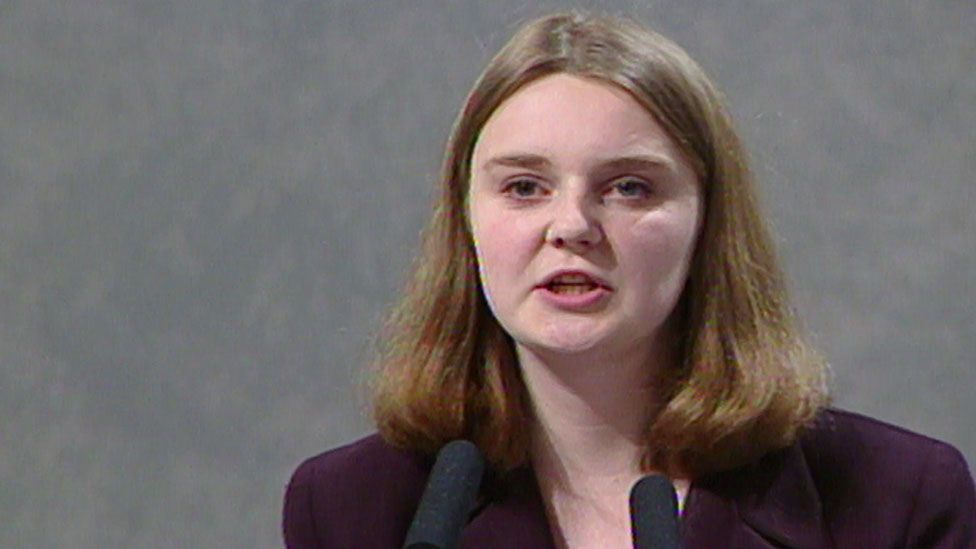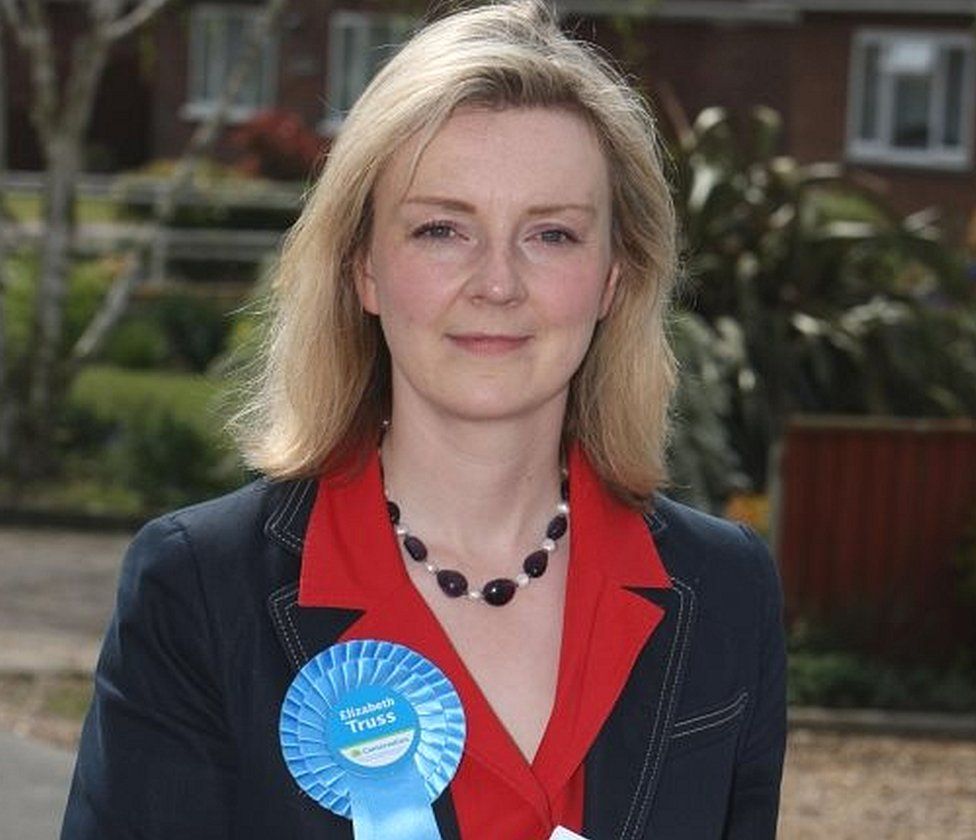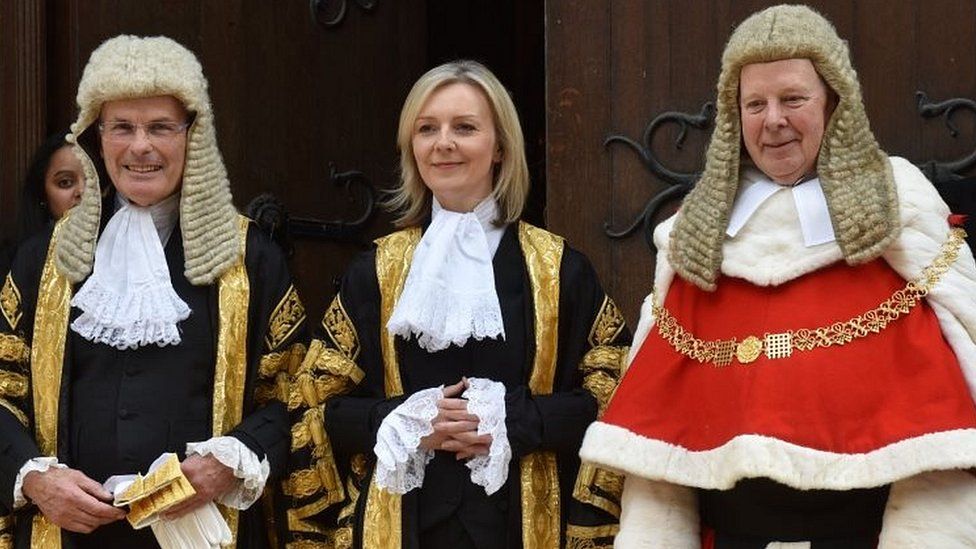Just 44 days after becoming prime minister, Liz Truss has announced she is to step down.
Until now the shortest-serving PM was George Canning who died in August 1827. He had spent only 119 days in office.
Ms Truss succeeded Boris Johnson as PM after winning a clear victory over Rishi Sunak in a ballot of Conservative Party members.
Two days later, Queen Elizabeth II died, the nation entered a period of mourning and normal politics was suspended.
But at the end of the week which began with the late Queen's funeral, the seeds of Ms Truss's political demise had already been sown - in then Chancellor Kwasi Kwarteng's mini-budget.
It included £45bn of tax cuts, funded by borrowing, which spooked financial markets and prompted a sharp fall in the value of the pound.
The plan was to "turbocharge" the economy by upending Treasury orthodoxy and focusing resolutely on boosting economic growth.
But continuing market turmoil meant the Bank of England had to step in to prop up the value of government bonds, and the government was soon forced to scrap plans to cut the top rate of income tax - during the Tory conference.
In the week before Ms Truss announced she was resigning, she sacked Mr Kwarteng - a close friend - and was forced to accept the junking of most of the rest of the mini-budget's tax cuts along with her overarching economic agenda.
To tackle soaring energy bills, the prime minister had also set out her energy price guarantee to limit households' gas and electricity costs. Similar support was announced for businesses.
U-turns undermine PM
But these expensive guarantees were later scaled back from two years to six months.
Day-by-day, the prime minister's authority and grip on events were disintegrating - and increasing numbers of Tory MPs were calling for her to go.
So where did Liz Truss come from and what made her tick?
A Remain supporter in the 2016 Brexit referendum who reinvented herself as the darling of the Conservative right, she had begun her political journey as a teenage Liberal Democrat activist.
It was her promise to return to fundamental Tory values - cutting taxes and shrinking the state - that went down so well with party members.
Rishi Sunak warned that her programme of tax cuts would fuel inflation and increase mortgage rates.
He beat her in all five rounds of voting by MPs. But in the decisive members' ballot, Ms Truss polled 81,326 votes against his 60,399.
Crucially, in the eyes of those who thought Boris Johnson had been unfairly ejected from office, she had remained loyal to Mr Johnson to the bitter end, as other cabinet minister deserted him.
Liz Truss: The basics
Age: 47
Place of birth: Oxford
Home: London and Norfolk
Education: Roundhay School in Leeds, Oxford University
Family: Married to accountant Hugh O'Leary with two teenage daughters
Parliamentary constituency: South West Norfolk
Born in Oxford in 1975, Ms Truss has described her father, a mathematics professor, and her mother, a nurse, as "left-wing".
As a young girl, her mother took her on marches for the Campaign for Nuclear Disarmament, an organisation vehemently opposed to the Thatcher government's decision to allow US nuclear warheads to be installed at RAF Greenham Common, west of London.
Though she is now proudly a Conservative from Leeds, back then she was a Scottish liberal.
The family moved to Paisley, just west of Glasgow, when Ms Truss was four-years-old.
In a BBC interview, she recalled shouting "Maggie, Maggie, Maggie - oot, oot, oot", in a Scottish accent, as she took part in marches.
The Truss family later decamped to Leeds, where she attended Roundhay, a state secondary school. She has described seeing "children who failed and were let down by low expectations" during her time there.
Some of Ms Truss's contemporaries at Roundhay have disputed her account of the school, including Guardian journalist Martin Pengelly who wrote: "Perhaps she is selectively deploying her upbringing, and casually traducing the school and teachers who nurtured her, for simple political gain."
One Roundhay school mate, who did not want to be named, told the BBC: "It was a really good school, really supportive teachers. Quite a lot of us have gone on to good universities and good careers."
Although not part of her friendship group, he has clear memories of the young Truss.
"She was quite studious, serious," he says, with a "heavy social conscience" and part of a group that were into environmentalism.
"I remember a school trip to Sellafield and her asking difficult questions and giving them a grilling. I remember that quite distinctly."
At Oxford University, Ms Truss read philosophy, politics and economics. Friends recall a well-liked, if frenetic, student.
Ms Truss was involved in many campaigns and causes at Oxford but devoted much of her time to politics, becoming president of the university's Liberal Democrats.
At the party's 1994 conference, she spoke in favour of abolishing the monarchy, telling delegates in Brighton: "We Liberal Democrats believe in opportunity for all. We do not believe people are born to rule."
She also campaigned for the decriminalisation of cannabis.
Her conversion to conservatism, towards the end of her time at Oxford, is said to have shocked her left-leaning parents, but for Mark Littlewood, a fellow Oxford Lib Dem, it was a natural progression.
"She's been a market liberal all of her adult life," according to Mr Littlewood, who is now director general of the libertarian, free-market think tank, the Institute of Economic Affairs.
"Her political career reflects her ideology - she has always been highly sceptical of big government and privileged institutions who think they know best," Mr Littlewood said.
She had become a Conservative because she had met like-minded people who shared her commitment to "personal freedom, the ability to shape your own life and shape your own destiny," she explained.
After graduating from Oxford she worked as an accountant for Shell, and Cable & Wireless, and married fellow accountant Hugh O'Leary in 2000. The couple have two daughters.
Ms Truss stood as the Tory candidate for Hemsworth, West Yorkshire, in the 2001 general election, but lost. Ms Truss suffered another defeat in Calder Valley, also in West Yorkshire, in 2005.
But, her political ambitions undimmed, she was elected as a councillor in Greenwich, south-east London, in 2006, and from 2008 also worked for the right-of-centre Reform think tank.
Conservative leader David Cameron put Ms Truss on his "A-list" of priority candidates for the 2010 election and she was selected to stand for the safe seat of South West Norfolk.
But she quickly faced a battle against de-selection by the constituency Tory association, after it was revealed she had had an affair with Tory MP Mark Field some years earlier.
The effort to oust her failed and Ms Truss went on to win the seat by more than 13,000 votes.
She co-authored a book, Britannia Unchained, with four other Conservative MPs elected in 2010, which recommended stripping back state regulation to boost the UK's position in the world, marking her out as a prominent advocate of free-market policies on the Tory benches.
She campaigned for Remain in the 2016 referendum, writing in the Sun newspaper that Brexit would be "a triple tragedy - more rules, more forms and more delays when selling to the EU".
However, after her side lost, she changed her mind, arguing that Brexit provided an opportunity to "shake up the way things work".
Under Theresa May's premiership, she became the first female Lord Chancellor and justice secretary, but she had several high-profile clashes with the judiciary and was demoted to chief treasury secretary.
When Boris Johnson became prime minister in 2019, Ms Truss was moved to international trade secretary - a job which meant meeting global political and business leaders to promote UK PLC.
In 2021, aged 46, she moved to one of the most senior jobs in government, taking over from Dominic Raab as foreign secretary.
Her decision to pose for photographs in a tank while visiting British troops in Estonia, was seen as an attempt to emulate Margaret Thatcher, who had famously been pictured aboard a Challenger tank in 1986. It also fuelled speculation that she was on leadership manoeuvres.
Ms Truss's campaign for the party leadership was not free of controversy.
Pressed on how she would tackle the cost-of-living crisis, she said she would focus her efforts on "lowering the tax burden, not giving out handouts".
She was forced to scrap a plan to link public sector pay to regional living costs by a backlash from senior Tories who said it would mean lower pay for millions of workers outside London.
And she called Scotland's First Minister Nicola Sturgeon an "attention seeker", adding it was best to "ignore her".
She also got into a spat with French President Emmanuel Macron, who accused her of "playing to the gallery" at a leadership hustings. Asked if Mr Macron was a "friend or foe", she had said the jury was still out.
But it was the economy that dominated her sometimes fractious leadership contest with Mr Sunak.
And it was Ms Truss's response to the cost-of-living crisis - and its collision with economic reality - that would define her briefest of premierships.








